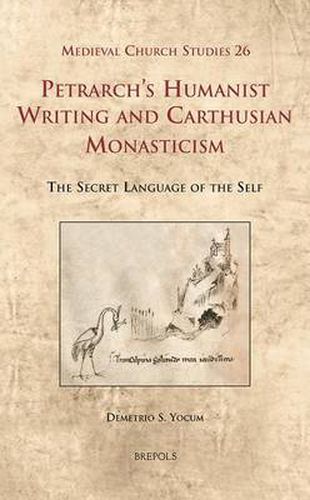Readings Newsletter
Become a Readings Member to make your shopping experience even easier.
Sign in or sign up for free!
You’re not far away from qualifying for FREE standard shipping within Australia
You’ve qualified for FREE standard shipping within Australia
The cart is loading…






The fourteenth century saw an exponential rise in charterhouses across Europe. During this period of growth, the cloister walls protecting the silence and solitude of the relatively small and isolated semi-eremitical Carthusian houses became more porous, pliable, and open to the outer world. Although still considered at the forefront of Christian piety and asceticism, the Carthusians began to be more clearly identified with their newly acquired taste for the arts, literature, and architecture. Gradually, charterhouses became major humanist centres attracting sophisticated patrons, artists, and scholars. Of the long line of renowned anti-scholastic intellectuals who were attracted to Carthusian circles, Petrarch was undoubtedly the first. By revealing the Carthusian imprint on Petrarch’s thought as well as elements of Carthusian spirituality present in his texts, this book argues that Carthusianism was an essential component of Petrarch’s Christian humanism and hermeneutics of the self. An interdisciplinary approach, involving parallel readings of Petrarchan texts, early monastic and Carthusian primary sources, together with more recent theological reflections, offers new insights into the role of Carthusianism in the intellectual debate on spirituality and the position of the individual within this order. Through Petrarch and his literary works, the Carthusian milieu ultimately shaped not only Renaissance humanism but also our understanding of the relationship between ‘self’, God, and others.
$9.00 standard shipping within Australia
FREE standard shipping within Australia for orders over $100.00
Express & International shipping calculated at checkout
The fourteenth century saw an exponential rise in charterhouses across Europe. During this period of growth, the cloister walls protecting the silence and solitude of the relatively small and isolated semi-eremitical Carthusian houses became more porous, pliable, and open to the outer world. Although still considered at the forefront of Christian piety and asceticism, the Carthusians began to be more clearly identified with their newly acquired taste for the arts, literature, and architecture. Gradually, charterhouses became major humanist centres attracting sophisticated patrons, artists, and scholars. Of the long line of renowned anti-scholastic intellectuals who were attracted to Carthusian circles, Petrarch was undoubtedly the first. By revealing the Carthusian imprint on Petrarch’s thought as well as elements of Carthusian spirituality present in his texts, this book argues that Carthusianism was an essential component of Petrarch’s Christian humanism and hermeneutics of the self. An interdisciplinary approach, involving parallel readings of Petrarchan texts, early monastic and Carthusian primary sources, together with more recent theological reflections, offers new insights into the role of Carthusianism in the intellectual debate on spirituality and the position of the individual within this order. Through Petrarch and his literary works, the Carthusian milieu ultimately shaped not only Renaissance humanism but also our understanding of the relationship between ‘self’, God, and others.